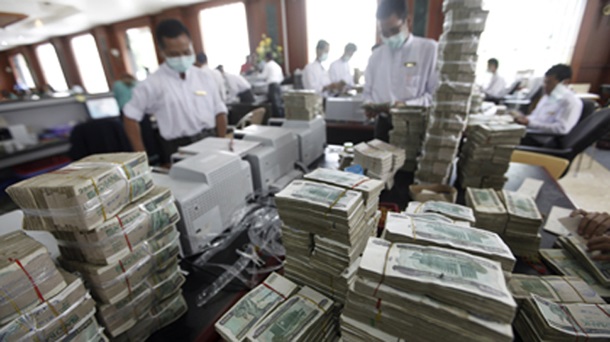The creation of a credit bureau is usually a key enabler in improving the access of credit for individuals, business owners and small enterprises.
A credit bureau provides lenders with the credit history of borrowers and statistical information to assess their ability to repay loans. It also introduces a level playing field with all lenders accessing the same information, driving borrowing costs down through competition for prime customers. Eventually, it limits the number of nonperforming loans that remain outstanding because lenders can make better-informed decisions.
These are the benefits of a successful credit bureau, whether it is a public credit registry attached to the central bank or a privately-run entity with obligations to the regulator or the banking association.
However, the introduction of a credit bureau in Burma may not bring significant benefits in the short- and medium-term.
The implementation of a credit bureau will take time and face many of the operational issues commonly observed in emerging markets. These include difficulties in identifying customers, the absence of reported financial information, and the lack of comprehensive and accurate data from lenders. Many banks do not yet have a core banking system or a developed IT system, and have to resort to manual and paper-based reporting.
The existence of a large informal lending sector also presents an obstacle to building a reliable credit bureau, because informal sector credit will not be reported.
More fundamentally, current limitations in credit access are not just linked to an absence of information that would be overcome by a credit bureau, but more to existing regulation and insufficient credit and risk management skills in the banking sector.
The relaxation of eligible collateral rules and the widening of the credit spread (the difference between the minimum deposit rate and the maximum credit rate, which is currently set at 5% by the Central Bank) would allow consumers with a higher risk profile, who are nonetheless still creditworthy, to borrow.
The development of credit risk management processes and skills in the banking sector would be needed to encourage the banks to do away with their current practices of monetizing existing collateral rather than lending to creditworthy economic agents.
The establishment of a credit bureau is undoubtedly an important step but should be part of a broader, much-needed banking sector transformation plan. Sequencing the plan and defining priorities would be key to maximizing impact, given the capacity constraints of both the government regulator and the banking industry.
Mr. Chassat is a Partner with Roland Berger and Head of Financial Services Practice, Southeast Asia. He has been advising the Central Bank of Myanmar on Foreign Bank Licensing and Interbank Market development.
















